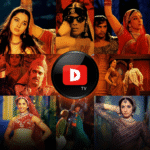Some films change the course of cinema forever. What’s even more remarkable? When those films are the directorial debuts of the filmmakers behind them. A director’s first film often sets the tone for their style, storytelling approach, and creative genius. When done right, it can leave an indelible mark on movie history.
From groundbreaking storytelling to redefining genres, here are the top 10 directorial debuts that have not only wowed audiences but forever changed the craft of filmmaking.
Citizen Kane by Orson Welles (1941)
Brief Synopsis
This cinematic masterpiece tells the story of Charles Foster Kane, a wealthy and enigmatic newspaper tycoon, through the fragmented memories of those who knew him.
Impact and Legacy
Dubbed “the greatest film of all time” by critics and historians, Citizen Kane introduced groundbreaking storytelling techniques like non-linear structure and deep-focus cinematography. Orson Welles, at just 25 years old, challenged traditional filmmaking with his innovative direction and bold narrative choices. To this day, the film remains a benchmark for aspiring directors and cinephiles. Watch here SSR Movie.
Reservoir Dogs by Quentin Tarantino (1992)
Brief Synopsis
A jewel heist goes terribly wrong, leading a group of criminals to question trust, loyalty, and betrayal as they regroup in a warehouse.
Impact and Legacy
Quentin Tarantino burst onto the scene with this dialogue-driven, violent, and stylized debut. Reservoir Dogs revitalized independent cinema in the 1990s and established Tarantino as a master of sharp dialogue, non-linear storytelling, and unforgettable characters. Its cultural resonance opened the doors for a new wave of gritty, low-budget films.
The 400 Blows by François Truffaut (1959)
Brief Synopsis
This coming-of-age story follows the hardships of a misunderstood boy, Antoine Doinel, as he navigates childhood and family dysfunction in post-war France.
Impact and Legacy
François Truffaut’s directorial debut marked a pivotal moment in the French New Wave movement. The 400 Blows introduced a naturalistic and deeply personal storytelling style, resonating with audiences worldwide. Truffaut’s work inspired countless filmmakers, from Steven Spielberg to Wes Anderson, to infuse their films with honesty and vulnerability.
Eraserhead by David Lynch (1977)
Brief Synopsis
A surrealist horror film that explores the psychological struggles of a man dealing with his fears of fatherhood and his distorted reality.
Impact and Legacy
David Lynch’s debut may not have been a mainstream hit, but it became a cult classic and an enduring symbol of experimental cinema. With its haunting imagery, unsettling sound design, and dreamlike narrative, Eraserhead laid the foundation for Lynch’s now-iconic cinematic style. Its influence is seen in the works of directors like Darren Aronofsky and Denis Villeneuve.
American Beauty by Sam Mendes (1999)
Brief Synopsis
This satirical drama dissects suburban life through the character of Lester Burnham, a disillusioned middle-aged man seeking meaning and freedom.
Impact and Legacy
Sam Mendes’ exceptional debut garnered five Academy Awards, including Best Picture and Best Director. With its poetic visuals and piercing social commentary, American Beauty became an emblem of late-90s cinema. Its bold storytelling continues to inspire directors exploring themes of identity, repression, and existentialism.
The Night of the Hunter by Charles Laughton (1955)
Brief Synopsis
A sinister and manipulative preacher hunts down two young siblings who hold the key to a hidden fortune.
Impact and Legacy
Although it was Charles Laughton’s only directorial work, The Night of the Hunter remains a timeless masterpiece. Its unique blend of Southern Gothic and German Expressionism influenced filmmakers like Martin Scorsese and David Fincher. The film’s visual storytelling continues to be studied for its striking use of shadow and composition.
Get Out by Jordan Peele (2017)
Brief Synopsis
A young Black man uncovers chilling secrets while visiting his white girlfriend’s family.
Impact and Legacy
Jordan Peele’s debut as a feature film director redefined modern horror with sharp social commentary and clever satire. Get Out was both a critical and commercial success, sparking meaningful conversations about race and systemic inequality. Peele’s ability to merge humor, horror, and cultural critique has influenced the genre immeasurably.
Lady Bird by Greta Gerwig (2017)
Brief Synopsis
This coming-of-age dramedy follows Christine “Lady Bird” McPherson as she navigates relationships, family, and her aspirations to leave her small-town life behind.
Impact and Legacy
Greta Gerwig charmed audiences with her deeply personal and authentic storytelling. Lady Bird became a defining film for a generation, showcasing female experiences with nuance and humor. Gerwig’s work inspired a wave of more diverse narratives in the industry, particularly those written and directed by women.
12 Angry Men by Sidney Lumet (1957)
Brief Synopsis
A courtroom drama where 12 jurors deliberate the fate of a young defendant, unraveling their prejudices and moral dilemmas.
Impact and Legacy
Sidney Lumet’s debut, shot almost entirely in a single room, turned a simple premise into an edge-of-your-seat masterclass in character development. 12 Angry Men remains a timeless study in group dynamics, morality, and the psychological complexities of decision-making.






